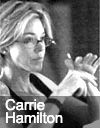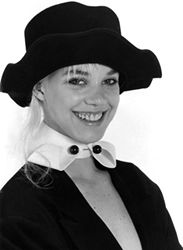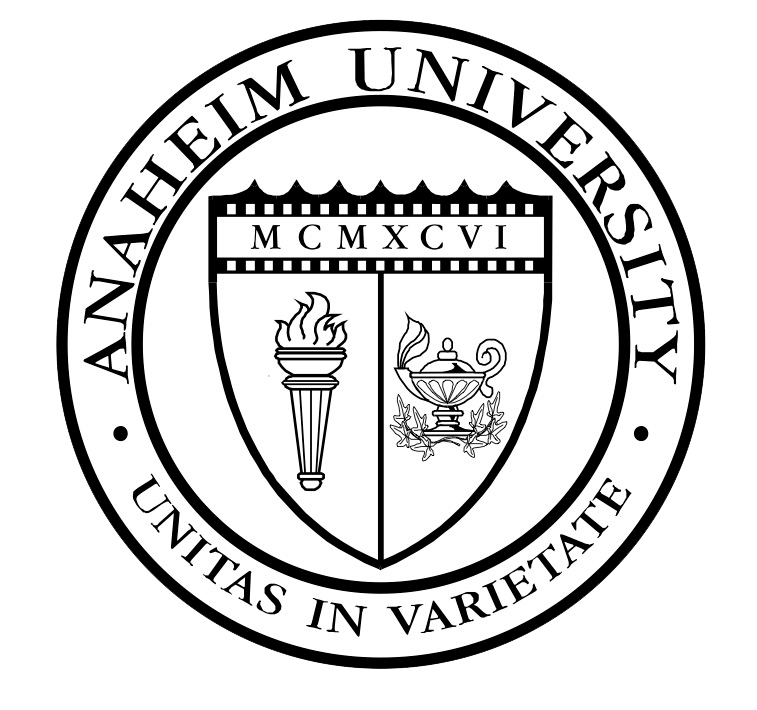BA in Creative Communications
June 6, 2023 2025-12-31 2:09BA in Creative Communications
Online BA in Creative Communications
Elevate your communication skills with Anaheim University’s online BA in Creative Communications completion program in Film & Entertainment. Gain expertise in media, public relations, and more. Enroll now to embark on a dynamic journey in the world of effective communication strategies.
- For students who have commenced an undergraduate program
- Transfer up to 90 credits and complete the B.A. degree in as little as 1 year
- Study online while working full time and fulfilling your personal responsibilities
Welcome from Emmy Award-Winning Actress Carol Burnett
-
FACULTY
-
OVERVIEW
-
OBJECTIVES
-
CURRICULUM
-
SCHEDULE
-
TUITION
-
ENTRANCE REQUIREMENTS
-
APPLY
-
About Carrie Hamilton
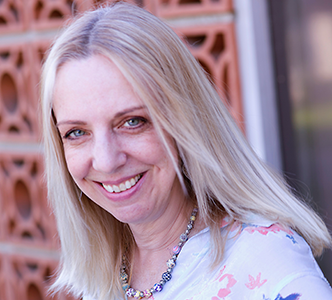
Alison Marek, MFA
Professor
ALISON MAREK (MFA, New York University) is an award-winning writer and director who’s combined words and images professionally since she was in her late teens. Her short films have played in festivals around the world and aired on cable TV. Her writing and directing have won grants from the Alfred P. Sloan Foundation and Showtime Networks, Inc.,

Dallas King, MFA
Professor
Holding an MFA in Directing / Production from the University of California Los Angeles (UCLA), Dallas King is an award-winning director, producer and experienced film instructor. Dallas has directed, written, and produced, and completed two feature films, KISS KISS, a hyper-stylized action thriller that premiered in Los Angeles and is available on every major platform including Amazon
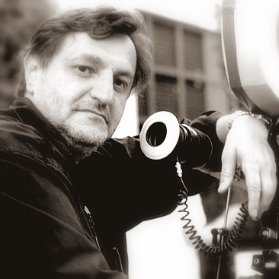
Henryk Cymerman, MFA
Professor
Henryk Cymerman was born in Poland and immigrated to New York in his mid-teens. He moved to Jerusalem to study sculpture at Bezalel Academy of Fine Arts and Design. Henryk discovered his interest in film through his exploration of mixed media art which prompted him to pursue his Masters in film at Tisch School of the Arts.
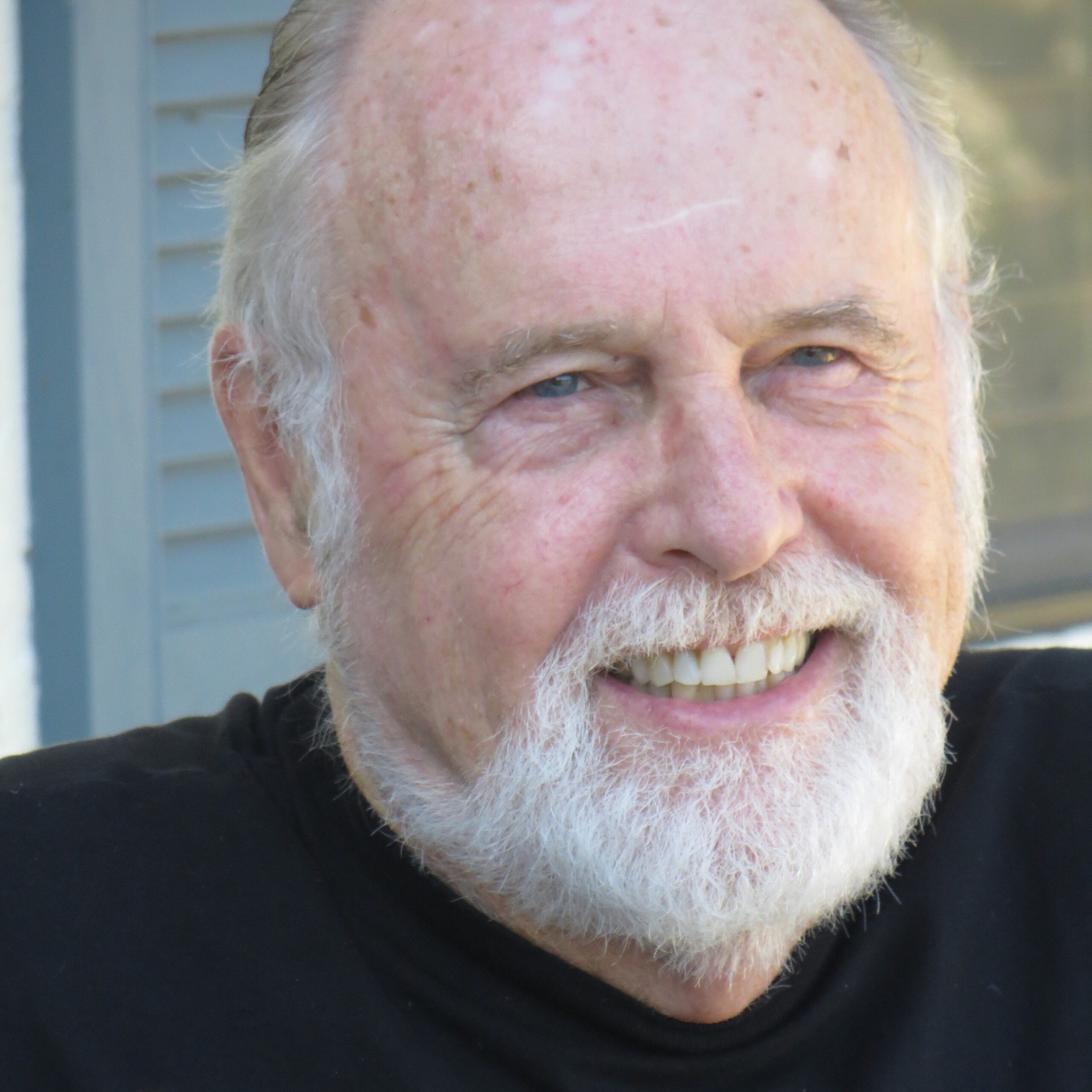
Robert Jones, MFA
Professor
Robert Jones has been teaching and making award-winning films for over 50 years. He has an MFA in Film Producing from UCLA, as well as an MS in Film Production and a BA from Boston University. He has taught film at Loyola Marymount University and California State University Northridge, in Los Angeles, and at the University of

Ryan Daniel McKinney, MFA
Professor
Ryan Daniel McKinney is an award-winning director and producer based out of Los Angeles, CA. His narrative films have screened at festivals in New York, Los Angeles, Houston, Kansas City, Orlando and Melbourne. He has directed numerous music videos in multiple genres and languages, as well as fashion lifestyle and brand videos and product commercials. Ryan

Douglas Montgomery, MBA
Undergraduate Instructor
Douglas Montgomery has over 20 years of experience as a leading entertainment business developer. He served for 13 years as the Vice President for Category Management at Warner Bros. in Burbank, where he worked with key Warner Bros. retailer partners around the world as a strategic advisor. Clients included Amazon, Walmart, Microsoft, Sony and others. Mr.
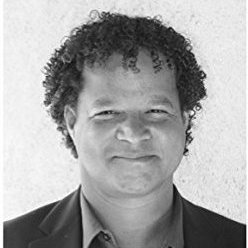
Raphael Raphael, Ph.D.
Professor
Raphael Raphael (Ph.D., University of Oregon; MFA, Plymouth University; Master’s, Teachers College, Columbia University) is a film and media scholar who also lectures at the University of Hawaiʻi at Mānoa. His work frequently looks at making connections between genre, culture and disability. His most recent book, Transnational Horror Cinema: Bodies of Excess and the Global Grotesque (2017),

Eric Van Hamersveld
Undergraduate Professor
For over 30 years, Eric Van Hamersveld has been involved in all creative, technical and business phases of the entertainment industry. He has been an animator for Warner Bros. Studios, J. Ward Productions, and Hanna Barbara Studios. His credits include: “The Pink Panther,” “Road Runner,” “Speedy Gonzalez,” “George of the Jungle,” and numerous TV series and

Billy Budd Vermillion, Ph.D.
Billy Budd Vermillion earned his Ph.D. from the University of Wisconsin-Madison in 2011. His dissertation examines the influence of Marxist humanist thought and the legacy of Socialist Realism on art films produced in East-Central Europe between 1956 and 1981. He has also published articles on silent romantic comedy and on the nature documentary “Microcosmos.” He has taught at the University
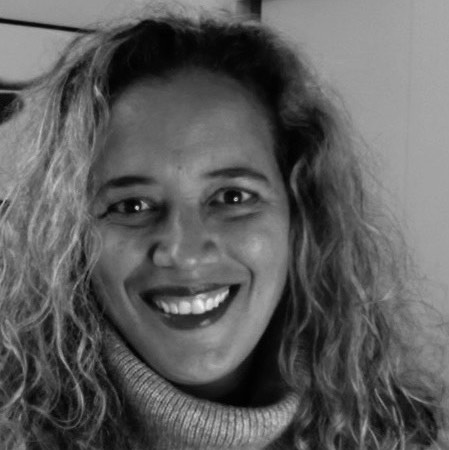
Firdosi Wharton-Ali
Professor
Graduating from UCLA with a BA (Political Science with a specialization in American Politics),
she followed that up with becoming a member of the inaugural class of the Certification in
Screenwriting Program, UCLA. Later, she obtained her MFA (specialization in Screenwriting)
from the prestigious UCLA School of Theater, Film, Television, and Digital Media where she was<br

David Desser, Ph.D.
Professor Emeritus & Founding Dean
Dr. David Desser has taught at the University of Southern California (USC), University of California Los Angeles (UCLA), University of Pennsylvania, University of Michigan, Kansai University in Japan, Hong Kong Baptist University and the University of Illinois where he is Professor Emeritus of Cinema Studies. He received his Ph.D. from USC in the

Vikram Channa, Master’s in Film & Television Production
Associate Dean of the Akira Kurosawa School of Film
Industry Expert
Vikram Channa serves as Associate Dean of the Anaheim University Akira Kurosawa School of Film. In the professional industry, as Warner Bros. Discovery Networks Vice President and Head of Content & Products for East and South East Asia, Vikram Channa leads all Discovery content, productions, broadcasts,
Overview
Benefits
- Continue where you left off. Transfer up to 90 units toward a BA in Creative Communications.
- Transfer in credits and complete your undergraduate degree online in 1 to 2 years.
- Interact with your professor and fellow classmates around the world
- Meet industry professionals online
- Learn from professors based in Hollywood and other leading entertainment markets without having to relocate during your period of study
Features:
- 20 x 9 week Online Courses
- New terms begin every 10 weeks
- Complete 2 courses per term
- 1 Course = 3 Credit Points
- Transfer 60 to 90 credits from another institution
- Complete a minimum of 30 credits at Anaheim University
- BA in Communications Completion Program = 120 Credit Points
- Total duration = 1 to 2 years
Method of Instruction
Online Learning
- reading of textbooks
- analysis of films
- submission of written and video assignments
- discussion forums with professor and students
Course Duration
Each course is nine weeks long. Students take two courses at a time, and courses begin every ten weeks.
Degree Program Duration
The BA in Communications Completion Program with a concentration in Film and Entertainment takes approximately two years to complete, but students who receive the full 90 possible transfer credits may complete the BA degree in less than one year. The maximum time allotted to complete the program is five years from the date of matriculation. Students may be granted an extension to their program at the discretion of the Program Director.
Program Study Suggestions
Students are responsible for the information contained in the course syllabi and course grading rubrics. Each course is worth 3 units, or 135 hours of study (approximately 15 hours a week). To help you allocate your time, each course guide contains a weekly program break-down. The course guides are meant as a suggestion only, but one that students are advised to adhere to as closely as possible to keep up with the demanding schedule of the courses. Below is a sample of program study suggestions:
- Complete the required readings, webinars, podcasts and/or film viewings and take notes (4 hours)
- Discuss the weekly assigned topic with other students via online Discussion Forum and respond to questions/ tasks (3 hours)
- On-going work on required Critical Responses (2 hours)
- Journal entries throughout the week (2 hours)
- On-going work on final culminating project (4 hours, depending on production stage)
- Total: 15 hours average per week
Program Features
Interactive
Students study in a highly collaborative online program, interacting daily on the Online Discussion Forum to discuss topics with their fellow students.
Networking Opportunities
Students from around the world interact with each other and their professors through the online Forum.
Experienced Faculty
Students have the opportunity to learn from highly qualified professors who have extensive experience in various fields of film.
Culturally Diverse Program
AU students have the opportunity to come into contact with individuals from different cultures around the world, providing a rich and diverse environment in which to study.
Achieve Success
Anaheim University faculty and staff are committed to helping every student succeed. Students benefit from small class sizes and direct access to professors.
Online Resources
Students have access to digital resources including journals, articles, video interviews, lectures and seminars.
For Working Professionals
The online system allows working professionals to obtain a BA degree without having to put their lives on hold to advance their careers.
Objectives
Core Pillars
Students program outcomes were developed in line with the Core Pillars of the Carrie Hamilton Entertainment Institute:
Creativity
Students develop their own voice, creating across a variety of forms and media.
Connection
Students are given the chance to recognize the integral nature of different disciplines and are encouraged to collaborate and create diverse, creative networks.
Compassion
Students are invited to let a deep sense of connection to others drive their curiosity to learn more about the world we share.
Communication
Students develop their craft and communicate to different audiences in engaging and compelling ways.
Contribution
Students are invited to find practical ways to create something lasting and kind, making the world a little better because of their presence and sharing their unique, creative voice.
Educational Objectives
Upon completion of the Bachelor of Arts in Creative Communications program, students will be able to:
- Students demonstrate proficiency in creative expression in a variety of expressive media forms, evidencing clear understanding (and ability to articulate in writing) the unique formal properties, history and influences of particular media.
- Students demonstrate a clear understanding of the integral nature of diversity and collaboration in creative enterprise and the associated professional and ethical responsibilities that entails.
- Students develop the capacity to effectively communicate their emerging practices informed by the context of global and historical trends, in the forms associated with professional practice (including crafting compelling pitches, treatments and scripts, and representing their professional identity and body of work in a variety of digital platforms and social media forms).
- Students demonstrate an understanding of some of the trends (including economic and technological ones) shaping film and entertainment as global industries and the practical implications for storytelling and entrance into a sustainable professional practice.
Curriculum
Bachelor of Arts completion program in Communication with a concentration in Film & Entertainment
Anaheim University’s Online Bachelor of Arts in Creative Communications Completion Program with a concentration in Film and Entertainment consists of 20 courses (9 weeks each). Each course is 3 units, for a total of 60 required units in four Areas of Competence that are designed to meet the four program objectives. The Areas of Competence are: History & Theory; Pre-Production & Development; Production A to Z; and What’s New.
History & Theory (12 Units) | ||
Pre-Production & Development (12 Units) | ||
Production A TO Z (21 Units) | ||
What’s New (15 Units) | ||
60 units | TOTAL UNITS |
Program Requirements and Satisfactory Academic Progress
The BA in Creative Communications Completion Program with a concentration in Film and Entertainment is a 60 unit program (30 units/year over two years). Students transfer the other 60 units to earn a 120 unit BA degree. Students who are approved to transfer an additional 30 units (90 transfer units total) may earn their BA degree in less than one year. Students must maintain a 2.0 grade point average (GPA) throughout the BA in Creative Communications program in order to graduate from the program. Any student whose GPA falls below a 2.0 will be put on Academic Probation and given two terms to bring his/her GPA back to a 2.0 level. Students who earn a grade lower than 70% (a “D” or “F”) on any given course must repeat the course. The BA schedule is set each year and typically announced in the Fall. Failure to take an available course when one is offered may prevent a student from completing his/her program in the allotted time. The maximum time allotted for completion of the BA program is four years. Students who have not completed their program within the maximum allotted time are subject to academic dismissal. Students who need additional time must receive permission from the Program Director.
Course Descriptions
BACF 310 History & Theory: Introduction To Film Theory (3 units)
This introductory course introduces some of the major theories that have been used to understand film as a social, cultural, and artistic form. Topics considered include feminism, genre, the auteur, spectatorship, cultural studies, and transnational cinema
BACF 311 History & Theory: Storytelling Structure (3 units)
This course introduces students to a story development system to provide an extremely precise map of their entire plot, enhancing and moving beyond the traditional “three-act” technique.
BACF 312 What’s New: Between Real And Virtual: New Directions In Storytelling (3 units)
This course gives the beginning filmmaker a fundamental understanding of the digital filmmaking process, starting from preproduction and going through production to post-production and delivery. Through lectures, screenings and hands-on practical learning, the students will learn the jobs and responsibilities of each member of a film crew, with proper onset procedures and protocols, and understand the fundamentals of screenwriting, casting, working with actors, camera techniques, directing and editing. Over the course of the class, each student will take a film project from inception to completion by applying the techniques learned throughout the course. This course will combine practical with theoretical learning in helping students gain a solid foundation in digital filmmaking.
BACF 320 Pre-production & Development: On-screen Diversity And Representation (3 units)
This course gives the creative artist/beginning filmmaker a fundamental understanding of the importance of diversity of representation in film and other media. Through readings and screenings, students explore ways in which on-screen images may dialogue with larger issues of social equity and justice, including representations of gender, ability/ableism, class, sexual orientation, race and ethnicity. Students will develop a broad historical understanding of representations of identity and will be invited to think about ways in which onscreen representation may dialogue with real-life equity.
BACF 330 History & Theory: History Of Film And Television (3 units)
Students in this course will study the history of film and television as a cultural phenomenon from a decades approach, exploring the cultural, social, and aesthetic evolution of both film and television over time. Students will look at national versus international trends, as well as the influence of politics and network structures. This course will also ask students to consider the role of audiences, trends, and preferences in the development of these platforms, as well as examining questions of on-screen representation, race and gender in dialog with emerging norms and values.
BACF 331 Production A To Z: Introduction To Animation (3 units)
All animators must know “Disney’s 12-Basic Principles of Animation” in order to create successful animated sequences. Good 3D animation looks terrific, but is very complicated, very time consuming, and needs very expensive software to produce. So, this class is designed as a simple 2D class, where you use paper/pencil to quickly create the drawings needed to get a firm hold on 12-Basic Animation Principles before you tackle the world of 3D or stop motion animation. Understanding the fundamentals of animation in 2D is so important that all major studios demand that 2D animation appear on Demo Reels… some even say up to 50% should be 2D (the rest of the reel demonstrates the knowledge of CG animation). The emphasis in the course is on performance character animation (acting). You will be given a simple character to use for the various assigned scenes. Through a combination of lecture and lab, students will create several 2D projects taken from the 12-Principles list. Topics covered include: Key Pose Animation; Squash and Stretch; Anticipation; Staging; Arcs; Lines-of-Action, etc. (NOTE: Knowing that many students do not consider themselves to be artists who want to become 3D Animators, please understand that for this class, it is not necessary to produce fantastic art… the projects just need to demonstrate the principle(s) that are being discussed.)
BACF 332 Production A To Z: Introduction To Digital Filmmaking (3 units)
This course gives the beginning filmmaker a fundamental understanding of the digital filmmaking process, starting from preproduction and going through production to post-production and delivery. Through lectures, screenings and hands-on practical learning, the students will learn the fundamentals of film production, including screenwriting, casting, working with actors, camera techniques, directing, editing and post-production finishing. Over the course of the class, each student will take a film project from inception to completion by applying the techniques learned throughout the course. This course will combine practical with theoretical learning in helping students gain a solid foundation in digital filmmaking.
BACF 340 What’s New: Introduction To Transnational Cinema And Culture (3 units)
In an increasingly interconnected global marketplace, understanding the transnational nature of the construction and reception of film and media is essential. Through surveying a selection of transnational media, this introductory course provides frameworks for thinking about the transnational nature of film, media and culture.
BACF 341 History & Theory: Film Genre (3 units)
This course provides students with a deepened understanding of genre in the following ways: 1) its industrial function as a category used for marketing purposes; 2) as a system of narrative and audio visual codes; and 3) as an implied contract of expectation between filmmakers and audience to deliver a certain emotional experience.
BACF 342 Pre-production & Development: Screenwriting – Writing A Short Film (3 units)
In this project-based introductory course, students gain a comprehensive understanding of the effective screenwriting process, including outlining, writing a first draft, and the process of effective revision.
BACF 410 What’s New: Entertainment – Learning From The Practitioners (3 units)
Entertainment is big business and multifaceted. From film production to the variety of television programming—series, reality, game shows—to videogames, web design, music producing, franchising and packaging, each segment of the industry requires both a general understanding of “entertainment” and specific dimensions of what various aspects entail. This course will provide a macro and micro view of the industry, from the global to the local, to enable students to understand the interconnectedness and possibilities of the field.
BACF 411 Pre-production & Development: Storyboarding For Animation And Film (3 units)
Storyboards are not comic books. They are “visual Scripts,” usually based on a written script, to help visualize scenes, flag potential production problems, estimate the production costs for a film project, and—especially for live-action— save time in shooting. Because animation is a complicated medium to produce, creating storyboards is a must! Using instructor-supplied scripts, audio tracks, character model sheets, and storyboard templates, the students will receive a basic understanding of camera storytelling, including how to break down a script; scrubbing an audio track; camera shot selection; staging; and types of opening and closing shots. Through a combination of lecture and lab, students will create several types of Storyboards: Thumbnail, Rough, and full-color Presentations. Each finished Storyboard will be combined with a soundtrack to produce a PowerPoint-like movie, called an Animatic. An Animatic movie is a low-cost tool used in the industry to show how a story will come together.
BACF 412 Production A To Z: Editing (3 units)
This course introduces the basic concepts of video editing. Students will learn how to get the right kind of footage on set, how to organize their footage, how to communicate with the director or editor, how to create rough cuts, and how to make final editing decisions based on the goals for the film. The basics of sound editing are also discussed. In addition to shooting their own footage, students will edit other students’ footage and complete editing exercises.
BACF 421 Production A To Z: Directing For The Screen (3 units)
This course gives the beginning filmmaker an intensive, foundational overview of the process of directing a film or media project from its initial concept to the expression of a unified, compelling vision. Through lectures, screenings, and practical exercises, students will develop an understanding of the key responsibilities of the director, with an emphasis on strategies for working with actors, effective script analysis, and visual design. In the process, students will develop an original or adapted scene to deepen their knowledge of the craft of directing and their own directorial skills.
BACF 430 What’s New: Digital Marketing Communication (3 units)
This introductory course surveys new directions and emerging trends in digital marketing, with a focus on entertainment and storytelling and its impact on the entertainment business. Digital technology is profoundly changing the way businesses and not-for-profits operate. This course will provide key skills for learners looking to better understand the field of digital marketing, develop meaningful content, conduct analytics to evaluate campaigns, and learn how to make the most of organic and paid tactics to best reach their target audience.
BACF 431 Production A To Z: Advanced Digital Filmmaking – Cinematography And Lighting (3 units)
This course gives the beginning filmmaker a more in-depth and intensive overview of advanced filmmaking, with a focus on understanding the principles and techniques of digital cinematography. Through screenings, readings, and practical exercises, students will develop an understanding of the key responsibilities of the cinematographer, with an emphasis on understanding cinematic lighting, composition, camera and lens functions, and movement. In the process of the course, students will apply the skills and learnings to properly light and compose an original scene.
BACF 432 Production A To Z: Documentary Film Production (3 units)
Through lectures, screenings, readings, discussions and hands-on practical learning, the students will learn the fundamentals of documentary production and then apply these techniques to their own short documentaries. The students will be required to research, develop, produce, shoot, edit and deliver a short documentary project by the end of the class.
BACF 440 Pre-production & Development: Business Communication – Effectively Communicating Creative Ideas (3 units)
In this project-based introductory course, students begin to think about and practice effective communication of their creative ideas. Topics covered include the ‘art of pitching’ and the design of an effective creative project business plan. Coursework is supplemented by expert industry professionals.
BACF 441 Production A To Z: Sound Production (3 units)
This course provides the creative artist/beginning filmmaker with a foundational understanding of how music can be used to tell stories and impact emotions. Through lectures, examples drawn from a range of creative work, and “hands-on” applied activities, students will learn the structures of creating and using musical accompaniment in film and other creative works.
BACF 442 What’s New: Producing For The Web (3 units)
This course gives students a comprehensive understanding on how to properly use and navigate the developments in web technology to create videos for online distribution. Through lectures, screenings, assigned readings and practical work, students will learn web video production techniques, creating proper aesthetics, editing for the web, compression and technical considerations for uploading, and social media and online marketing. Students will take the concepts discussed in class and apply them to create their online video projects.
2026 BA in Creative Communication Schedule
BACF 310 Introduction to Film Theory | |
BACF 330 History of Film and Television BACF 341 Film Genre |
PLEASE NOTE: Failure to take a required course when one is offered may prevent a student from completing his/her program in the allotted time, as all course work must be completed before a student will be allowed to advance to the dissertation phase of the program. Schedules are subject to change.
Tuition & Fees
BA in Creative Communications Completion Program Fees
Affordable Pay-As-You-Learn System: Pay for only one course at a time.
Application and Registration Fees
Application Fee | $ 75 |
Registration Fee | $100 |
STRF Fee* (non-refundable, CA residents only) | $0 |
Per Course Fees (Required 20 courses) | $1,050 / course taken |
Records Fee | $50 / course |
Textbooks | $125 |
Per Course Fee Total: | $1,225 |
Additional Fees | $500 |
Cost of Equipment | $800 |
Cost of Optional Equipment | $3,400 |
Transfer Credit Fee (optional) | $75 / course (Optional) |
Original Transcript | No cost |
Each Additional Transcript Copy (optional) | $25 |
End of Program Fees | No cost |
Replacement Diploma | $200 (optional) |
Replacement Cover | $150 (optional) |
Official Completion Letter | $35 (optional) |
Total Fees and Charges | $25,975 |
* The Student Tuition Recovery Fund (STRF): The Student Tuition Recovery Fund (STRF) is administered by the California BPPE and applies only to California residents. The STRF fee is currently zero ($0) per one thousand dollars ($1,000) of institutional charges The State of California established the Student Tuition Recovery Fund (STRF) to relieve or mitigate economic loss suffered by a student in an educational program at a qualifying institution, who is or was a California resident while enrolled or was enrolled in a residency program, if the student enrolled in the institution, prepaid tuition, and suffered an economic loss. Unless relieved of the obligation to do so, you must pay the state-imposed assessment for the STRF, or it must be paid on your behalf, if you are a student in an educational program, who is a California resident, or are enrolled in a residency program, and prepay all or part of your tuition. You are not eligible for protection from the STRF and you are not required to pay the STRF assessment, if you are not a California resident, or are not enrolled in a residency program.
Note: The list of program fees does not include textbook fees, software subscriptions, or film viewing fees. Textbooks average less than $100 per course, and software subscriptions and film viewing fees average less than $50 per course.
Anaheim University provides access to library resources and library services for all students enrolled directly through Anaheim University. However, students enrolled in Anaheim University’s BA in Creative Communications program are required to have an additional reserve fund of $500 to be used for the purchase of any additional resources that may be required to complete their program of study.
Affordable Pay-As-You-Learn System: Pay for only one course at a time, or receive a 10% discount on tuition by paying 100% of your program fees at the time you enroll.
Please see the refund policy in the Policies and Procedures catalog.
Payments can be made by check, credit card (Visa, MasterCard, American Express, or Discover), money order, or bank transfer. Tuition may be paid on a course-by-course basis. The application fee must be paid at the time of application, and prior to beginning the first term, students must pay the registration, tuition, and records fee. For the remaining terms, students must pay the tuition and records fee.
Some courses require submission of an original film project; production expenses are also the responsibility of the student and are not included in the BA in Creative Communications program fees.
Facilities, Equipment and Technological Requirements
Anaheim University is an online institution, and all instructional equipment and materials must be provided by the student.
The course management system used by Anaheim University is Moodle. Moodle 3.5 is compatible with any standards-compliant web browser, including Google Chrome, Mozilla Firefox, Safari, Microsoft Edge, and Internet Explorer. Moodle is also available on mobile device browsers through MobileSafari and Google Chrome. Please note that older “legacy” browsers have compatibility issues with Moodle 3.5. These older browsers include Internet Explorer 10 and below, and Safari 7 and below. For the best experience and optimum security, we recommend that you keep your browser up-to-date.
The Carrie Hamilton Entertainment Institute takes into account the fact that our students are living and working in various settings around the world, and their equipment needs may vary greatly.
Equipment Requirements:
- Access to a computer and internet
- Smartphone, other video camera, DSLR, and lighting accessories or equipment. Other expenses may be incurred when producing your projects and costs vary depending on the equipment you choose.
An application to the BA in Creative Communications completion program with a concentration in Film & Entertainment program must include the following:
- Application form
- Application fee ($75)
- One recent color photograph (digital is okay)
- A scan of a current, government-issued photo ID
- A high school diploma or its recognized equivalent at the time of admission
Official undergraduate transcripts from an accredited institution recognized by the US Department of Education and/or CHEA, or by the government of the country in which the degree was awarded, in a sealed envelope from the awarding institution with an overall GPA of no less than 3.0 on a 4.0 scale, or equivalent from non-USA Institutions. The transcripts must document 60 undergraduate units* (15 of those units can be experiential).
Note: If the university does not routinely issue transcripts in English, original language records must be submitted with official English translations. We will accept translations issued by the university or by the following professional translation services: Accredited Language Services; Berlitz; Liaison Linguistics; Josef Silny & Associates; American Evaluation & Translation Services (AETS); and Education Evaluators International. Translations must be exact and complete versions of the original records.
Note: A total of 30 of these 60 undergraduate units must have been general education courses designed to develop essential academic skills and not associated with a particular field of study. These courses may encompass written and oral communication; quantitative principles; natural and physical sciences; social and behavioral sciences; and humanities and fine arts.
Non-native English speakers must demonstrate college-level proficiency by providing original documentation in one of the following ways:
- Degree from an accredited institution where English is the primary language of instruction.
- Transcript from an accredited institution indicating completion of at least 30 semester hours of credit where the language of instruction was English (“B” average)
- Transcript from an accredited institution indicating a “C” or higher in an English composition class.
- A minimum TOEFL score of 500 PBT / 173 CBT/ 61 iBT.
- A minimum TOEIC score of 625.
- A minimum IELTS score of 6.0.
- A minimum PTE (Pearson Test of English Academic Score Report) of 44.
- A minimum grade of Level 3 on the ACT COMPASS’s English as a Second Language Placement Test.
- A minimum grade of Pre-1 on the Eiken English Proficiency Exam.
- A minimum B1 English proficiency level identified within the Common European Framework of Reference (CEFR) Standards and assessed through various ESOL examinations, including the University of Cambridge.
- A minimum Duolingo English Test score of 95
- A minimum 4-skill Michigan English Test (MET) score of 53
- A minimum Michigan Examination for the Certificate of Competency in English (ECCE) score of 650/LP
- A minimum Michigan Examination for the Certificate of Proficiency in English (ECPE) score of 650/LP
- A minimum score on the College Board Accuplacer ESL Exam Series as follows: ESL Language Use (85); ESL Listening (80); ESL Reading (85); ESL Sentence Meaning (90); ESL Writeplacer (4)
The language of instruction at Anaheim University is exclusively English.
Once your application materials have been approved, you will need to submit an Enrollment Agreement and tuition payment to complete the enrollment process.
Internet Access: All students are required to have access to a computer equipped with Internet access capabilities.
Required Equipment: The Carrie Hamilton Entertainment Institute takes into account the fact that our students are living and working in various settings around the world, and their equipment needs may vary greatly.
- Access to a computer and internet
- Smartphone, other video camera, DSLR, and lighting accessories or equipment. Other expenses may be incurred when producing your projects and costs vary depending on the equipment you choose
Entrance Examination: There is no entrance examination required for admission to Anaheim University.
Transfer Credits: To earn a BA in Creative Communications degree at Anaheim University, a student must document the completion of 120 semester units, including a minimum of 30 units completed at Anaheim University. Anaheim University will accept up to 90 semester units awarded by another institution toward the 120 units.
The first 60 of the 90 semester units that may be accepted in transfer are required as part of entrance into the BA in Creative Communications program, and 30 of these 60 must consist of general education courses. General education courses are not associated with a particular field of study and are designed to introduce students to each of the major divisions of formal learning, including written and oral communication; quantitative principles; natural and physical sciences; social and behavioral sciences; and humanities and fine arts.
The remaining 30 of the 90 semester units that may be transferred must align with BA in Creative Communications courses. The entering student will be required to clearly demonstrate the equivalency of these transfer courses through relevant documents (syllabus, catalog, course outline) and justify their acceptance through petition. No course will be considered for transfer with a grade lower than a “C” or its equivalent. There is a fee of $75 for each of these aligned BA in Creative Communications courses, and the overall program cost will be adjusted to reflect credit for the approved class(es).
All petitions for transfer credit must be submitted as part of the student’s initial application to the University. Credits awarded as part of another degree will not be accepted for transfer. Anaheim University has not entered into an articulation or transfer agreement with any other college or university. Official transcripts from the transferring institution are required for transfer credit consideration. Anaheim University reserves the right to request a course catalog and/or syllabus from the granting institution for the year(s) the credit was originally earned.
Prior Experiential Credit: Credit awarded for experiential or equivalent learning cannot exceed 25 percent (30 units) of the credits required for an undergraduate degree. Anaheim University maintains official documentation of the bases for decisions to award credit for experiential or equivalent learning, following the evaluation standards consistent with CAEL’s Ten Standards for Assessing Learning. Prior learning assessment is performed by the Director, who is qualified with experience in the evaluation of prior learning. These evaluation standards include the following:
- Credit or competencies are awarded only for evidence of learning, not for experience or time spent.
- Assessment is integral to learning because it leads to and enables future learning.
- Assessment is based on criteria for outcomes that are clearly articulated and shared among constituencies.
- The determination of credit awards and competence levels are made by appropriate subject matter and credentialing experts.
- Assessment advances the broader purpose of equity and access for diverse individuals and groups.
- Institutions proactively provide guidance and support for learners’ full engagement in the assessment process.
- Assessment policies and procedures are the result of inclusive deliberation and are shared with all constituencies.
- Fees charged for assessment are based on the services performed in the process rather than the credit awarded.
- All practitioners involved in the assessment process pursue and receive adequate training and continuing professional development for the functions they perform.
- Assessment programs are regularly monitored, evaluated, and revised to respond to institutional and learner needs.
We currently do not accept students who reside in Alabama, Arkansas, Alaska, American Samoa, Connecticut, Delaware, District of Columbia, Georgia, Guam, Indiana, Maryland, Massachusetts, Michigan, Minnesota, Montana, New Jersey, New Mexico, New York, North Carolina, North Dakota, N. Mariana Islands, Oklahoma, Oregon, Pennsylvania, Puerto Rico, Rhode Island, Utah, Virginia, Virgin Islands, Wisconsin, and Wyoming due to regulatory matters. For more information, please call our Vice President of Administrative Affairs at 714-772-3330
The steps below are general guidelines for joining a program at Anaheim University. Just complete the following steps and, if approved, become part of Anaheim University’s global community within 2 weeks.
Step 1:
Read thoroughly through the pages of our website and catalog
Step 2:
- Click here to submit your application online
- Click here to fill out a pdf version of the application and submit via email.
Step 3:
The following documents are required for admission:
- Application form
- One recent passport-size color photograph
- Official English language proficiency test score report if you are a non-native English speaker (mail original*)
- Official transcripts.† (mail original*)
- Official transcripts documenting at least one course in each of the following: accounting, finance and economics.†††† (mail original*)
documenting a minimum of 5 years of work or teaching experience in a relevant area of business†††† - Resume ††
- Brief Statement.††
- Resume documenting a minimum of 4 years experience in some aspect of TESOL (teaching, teacher education or publishing).+++
- An outline (1,000 words) of the possible research that the applicant envisions undertaking for the dissertation that demonstrates his/her research experience and abilities. +++
- Three reference letters (on letterhead with contact information) attesting to personal and professional qualifications. One reference must be from each of the following:+++
– A recent employer.
– A TESOL professional who can attest to the applicant’s potential as a doctoral student.
– A member of the academic faculty where the applicant completed his/her MA.
†††† DBA Only
††† Ed.D TESOL Only
†† MA TESOL or MFA Only
† Not applicable to TESOL/TEYL Certificate Programs
*scanned copies are accepted to expedite application process while waiting for originals to arrive in the mail
Documents can be uploaded as part of the online application form, emailed to support@anaheim.edu or posted in the mail to the address in Step 5.
Step 4:
This fee may be paid by emailing the Credit Card Form to registrar@anaheim.edu
posting a check or money order in the mail to the address in Step 5
contacting registrar@anaheim.edu for information on how to send a bank wire transfer
Step 5:
Send all required application documents you do not submit online by registered mail to the Office of Admissions at:
Anaheim University
Office of Admissions Room 110
1240 S. State College Blvd.
Anaheim, CA 92806-5150
USA
Step 6:
Upon receipt of application materials, a receipt for the application fee will be sent to you. In case your application materials are incomplete, please follow the directions issued by AU. When the Dean has approved acceptance of a student, an acceptance message and enrollment agreement form will be sent to the student.
Important Notes:
Official TOEFL or TOEIC score document-Non-native English speakers must demonstrate college-level proficiency in one of the following ways:
- Degree from an accredited institution where English is the primary language of instruction.
- Degree from an accredited institution where English is the primary language of instruction.
- Transcript from an accredited institution indicating completion of at least 30 semester hours of credit where the language of instruction was English (“B” average for graduate level programs, “C” average for undergraduate/non-credit programs).
- Transcript from an accredited institution indicating a “B” or higher in an English composition class (Ed.D, Masters, Graduate Programs & Graduate Certificates); “C” or higher for TESOL Certificate, Teaching English to Young Learners Program or TESOL Undergraduate Diploma
- A minimum TOEFL score of 500 PBT / 173 CBT/ 61 iBT (undergraduate/non-credit programs) or a minimum TOEFL score of 530 PBT / 197 CBT/ 71 iBT (graduate-level programs) or a minimum TOEFL score of 550 PBT/ 213 CBT/ 80 iBT (doctoral-level program).
- A minimum TOEIC score of 625 (undergraduate/non-credit programs) or a minimum TOEIC score of 800 (graduate-level and doctoral level programs).
- A minimum IELTS score of 6.0 (undergraduate/non-credit programs) or a minimum IELTS score of 6.5 (graduate-level programs).
- A minimum PTE (Pearson Test of English Academic Score Report) of 44 (undergraduate/non-credit programs) or a minimum PTE of 50 (master’s-level programs) or a minimum PTE of 58 (doctoral-level program).
- A minimum BULATS Level 3 (60), accepted only for Cultura Inglesa in Brazil.
- A minimum grade of Level 3 on the ACT COMPASS’s English as a Second Language Placement Test.
- A minimum grade of Pre-1 on the Eiken English Proficiency Exam.
- A minimum B1 English proficiency level identified within the Common European Framework of Reference (CEFR) Standards and assessed through various ESOL examinations, including the University of Cambridge.
- A minimum Duolingo English Test score of 95 (undergraduate/non-credit programs) or a minimum of 100 (master’s level programs), or a minimum of 105 (doctoral level programs).
- A minimum 4-skill Michigan English Test (MET) score of 53 (undergraduate/non-credit programs) or a minimum of 55 (graduate level programs).
- A minimum Michigan Examination for the Certificate of Competency in English (ECCE) score of 650/LP (all programs).
- A minimum Michigan Examination for the Certificate of Proficiency in English (ECPE) score of 650/LP (all programs).
- A minimum score on the College Board Accuplacer ESL Exam Series as follows: ESL Language Use (85); ESL Listening (80); ESL Reading (85); ESL Sentence Meaning (90); ESL Writeplacer (4); or a Comprehensive Score for All Exams (350).
Official Transcripts
Request that each college or university which you have attended send a transcript of your record in a sealed envelope. The courses you have taken, grades received, and, if applicable, the date and title of the degree conferred must be listed on each transcript. Each transcript must have the official seal or imprint of the institution as well. (Note: If the university does not routinely issue transcripts in English, original language records must be submitted with official English translations. We will accept translations issued by the university or by the following professional translation services: Accredited Language Services; Berlitz; Liaison Linguistics; Josef Silny & Associates; American Evaluation & Translation Services (AETS); and Education Evaluators International. Translations must be exact and complete versions of the original records.)
Ed.D in TESOL Program applicants must have official MA transcripts, in a sealed envelope from the awarding institution. Applicants to the Ed.D program must hold an earned MA degree from an accredited institution in TESOL, Applied Linguistics, or a relevant area of education, with an overall GPA of 3.0 on a 4.0 scale (or equivalent from non-USA institutions).
The DBA program requires a Masters degree in business administration, in a functional area of business, non-profit management, public administration, a JD degree, or other degree relating to managerial functions from an accredited institution recognized by the US Department of Education and/or CHEA, or by the government of the country in which the degree was awarded, and with an overall GPA of no less than 3.0 on a 4.0 scale, or equivalent from non-USA Institutions.
Licenses or Certificates
Please include photocopies of any licenses or certificates you hold which relate to the degree program to which you are applying. Do not submit originals as these materials will not be returned.
Resume
Please submit an up-to-date summary of your academic and professional accomplishments. An Ed.D. applicant must present a resume documenting a minimum of 4 years experience in some aspect of TESOL (teaching, teacher education or publishing.) A DBA applicant must present a resume documenting a minimum of 5 years of work or teaching experience in a relevant area of business
Brief Statement
For MA in TESOL and MFA program applicants, please write a brief (300 – 400 word) statement setting out why you have selected the Anaheim University program, what you hope to get out of it, and how it will help you in your present and future career.
Upon receipt of application materials, a receipt for your application fee payment will be sent to you. In the case that your application materials are incomplete, please follow the directions issued by AU. When the Dean has approved acceptance of a student, an acceptance message and enrollment agreement form will be sent to the student.
About The Carrie Hamilton Entertainment Institute
